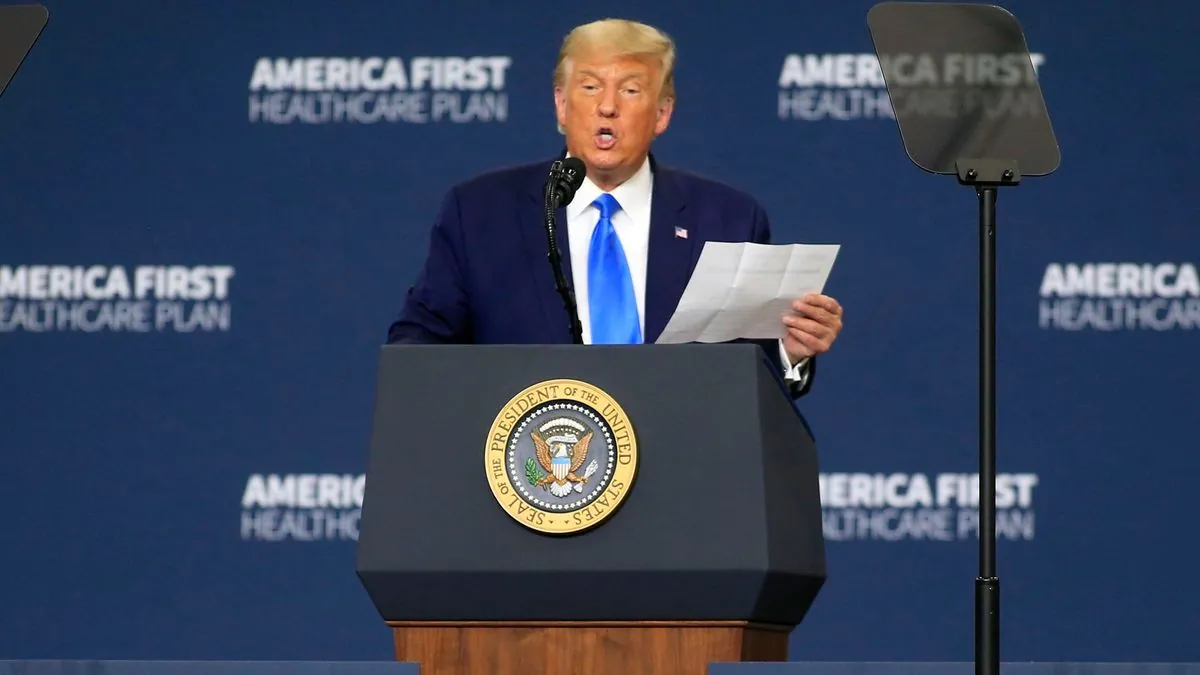Trump's Healthcare Plan Remains Elusive: "Concepts" Over Concrete Proposals
Former President Trump faced tough questioning about his long-promised healthcare plan, admitting to having only "concepts." This revelation contrasts with his criticism of opponents and highlights the complexity of healthcare reform.

In a recent debate, Donald Trump faced a challenging question about his long-promised healthcare plan. Moderator Linsey Davis highlighted that despite repeated assurances during his previous presidential campaigns, Trump had yet to deliver a comprehensive approach to healthcare reform.
When pressed for details, the former president's response was notably vague. "I have concepts of a plan," Trump stated, a phrase that quickly gained attention for its lack of substance. This admission stands in stark contrast to his previous criticisms of political opponents, particularly Vice President Kamala Harris, for allegedly lacking concrete policy proposals.
The exchange underscores a recurring theme in Trump's political career: grand promises without detailed follow-through. This pattern extends beyond healthcare, reminiscent of the oft-postponed "infrastructure week" that became a running joke during his presidency.

Trump's healthcare promises date back to his first presidential campaign in 2015. Since then, the U.S. healthcare system has continued to face significant challenges. As of 2021, approximately 28.5 million Americans remained uninsured, despite the U.S. spending about 17% of its GDP on healthcare—more than any other developed nation. The average annual premium for employer-sponsored family health insurance reached $22,221 in 2021, highlighting the financial burden on many Americans.
The complexity of healthcare reform cannot be overstated. The U.S. healthcare system is the most expensive globally, with spending reaching $4.3 trillion in 2021. Despite this high expenditure, the country ranks 30th worldwide for healthcare access and quality, according to a 2018 study published in The Lancet.
Trump's current policy platform, known as "Agenda 47," offers little specificity on healthcare reform. This vagueness has allowed critics to suggest that the former president might adopt proposals from the Heritage Foundation's "Project 2025," a comprehensive conservative policy blueprint.
"I have concepts of a plan."
The admission of having only "concepts" rather than a detailed plan may impact Trump's credibility on this crucial issue. Healthcare remains a top concern for many voters, with medical debt being the leading cause of bankruptcy in the United States. The ongoing challenges, including high prescription drug prices and a declining life expectancy—which reached 76.1 years in 2021—underscore the need for substantive reform proposals.
As the debate over healthcare reform continues, the contrast between promises and concrete plans becomes increasingly apparent. The complexity of the issue, coupled with the high stakes for millions of Americans, demands more than concepts—it requires detailed, actionable strategies to address the multifaceted challenges of the U.S. healthcare system.


































